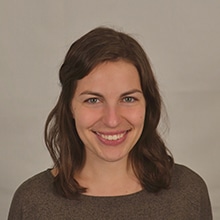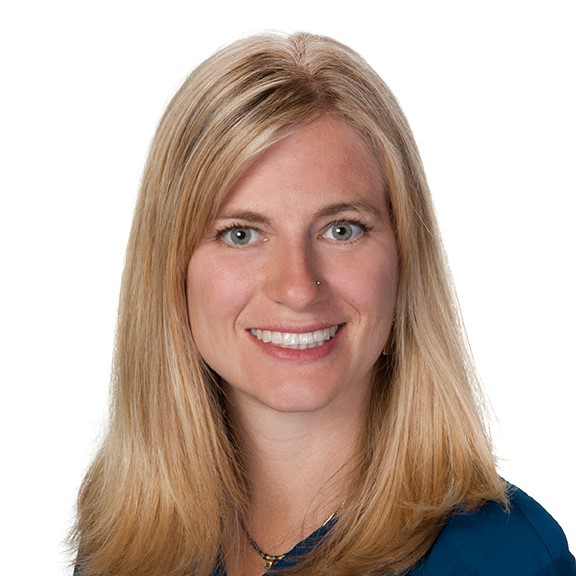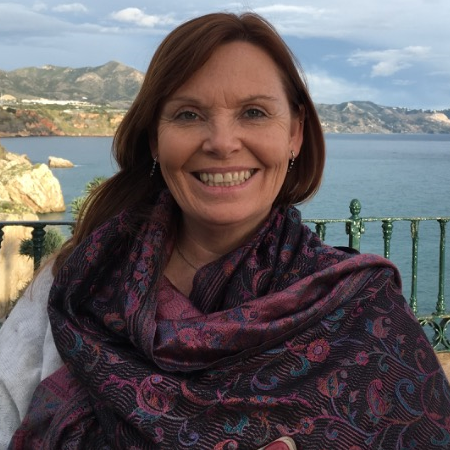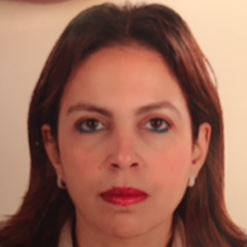Mar 22, 2018 | by The SEEP Network
Measuring changes in poverty and empowerment is complex. This requires carefully designed measurement methods that can capture gender-sensitive data. Across many market systems development programs, a monetary approach is often used to define and measure poverty. This is not unusual, given that money-metric definitions and measures of poverty are the most tested and recognized. There are also new alternative poverty measurement tools that capture the multi-dimensional aspects of poverty and capture intra-household dynamics. This webinar explored the strengths and weaknesses of each approach, and discuss the practical implications for practitioners. Specifically, the webinar explored tools such as the Poverty Probability Index (PPI) and newer poverty measurement tools such as the Individual Deprivation Measure and the Disadvantage Assessment. Each presenter introduced their tool, explain the practical applications, and its ability to capture or catalyze gender-responsive results.
This webinar was the first event in a two-year learning series: "In Practice: Women's Economic Empowerment in Market Systems," which will feature a thought-provoking sequence of webinars, e-discussions, and practitioner briefs, followed by an in-person learning event. The learning partnership is brought to you by the Arab Women’s Enterprise Fund (AWEF) together with DAI Europe, MarketShare Associates, the SEEP Network and UK’s Department for International Development (DFID).
Join the conversation on Twitter using the hashtags #AWEF and #WomenInMarkets
Rachel Wells, PPI Data Analyst, Innovations for Poverty Action
 Rachel Wells supports IPA's Poverty Probability Index (PPI®) through national household survey data acquisition, analysis, predictive modeling, field testing, report writing, and product development planning. Prior to joining IPA, she worked at IBM as a Data Science and Predictive Analytics Client Technical Specialist. Rachel studied Mathematics and Statistics at Baylor as a University Scholar.
Rachel Wells supports IPA's Poverty Probability Index (PPI®) through national household survey data acquisition, analysis, predictive modeling, field testing, report writing, and product development planning. Prior to joining IPA, she worked at IBM as a Data Science and Predictive Analytics Client Technical Specialist. Rachel studied Mathematics and Statistics at Baylor as a University Scholar.
Erin Markel, President, MarketShare Associates, Lead on the Disadvantage Assessment
 Erin Markel specializes in specializes in identifying, implementing and measuring business solutions for positive social impact, with a focus on market systems and the empowerment of women and youth. Erin is part of the DFID-funded Arab Women’s Enterprise Fund (AWEF) team and led the development of the Disadvantage Assessment for AWEF. Erin is a Co-Founder and Principal Consultant at MarketShare Associates (MSA), a global firm of creative facilitators, strategists, economists and experienced research and data nerds who believe that both public and private institutions should contribute to social transformation. Erin has led a variety of consultancies including work with DAI Europe for the Arab Women’s Enterprise Fund, USAID LEO initiative, World Bank, PricewaterhouseCoopers, International Youth Foundation, TradeMark East Africa, CARE and the Aga Khan Foundation. Prior to joining MSA, Erin was the lead for Market Development and Access to Finance at the Aga Khan Foundation Canada. Past experience includes working for Women’s World Banking, ProMujer and the Aspen Institute. Erin holds a Master of International Affairs from Columbia University.
Erin Markel specializes in specializes in identifying, implementing and measuring business solutions for positive social impact, with a focus on market systems and the empowerment of women and youth. Erin is part of the DFID-funded Arab Women’s Enterprise Fund (AWEF) team and led the development of the Disadvantage Assessment for AWEF. Erin is a Co-Founder and Principal Consultant at MarketShare Associates (MSA), a global firm of creative facilitators, strategists, economists and experienced research and data nerds who believe that both public and private institutions should contribute to social transformation. Erin has led a variety of consultancies including work with DAI Europe for the Arab Women’s Enterprise Fund, USAID LEO initiative, World Bank, PricewaterhouseCoopers, International Youth Foundation, TradeMark East Africa, CARE and the Aga Khan Foundation. Prior to joining MSA, Erin was the lead for Market Development and Access to Finance at the Aga Khan Foundation Canada. Past experience includes working for Women’s World Banking, ProMujer and the Aspen Institute. Erin holds a Master of International Affairs from Columbia University.
Sharon Bessell, Professor of Public Policy and Director of Gender Equity and Diversity, Australian National University, Lead on the Individual Deprivation Measure
 Sharon Bessell is Professor of Public Policy and Director of Gender Equity and Diversity at the Crawford School of Public Policy, The Australian National University. Her research revolves around issues of equality, social justice and human rights, with a focus on the gendered and generational dimensions of poverty and social policy for children. She is currently leader of the ANU-IDM team. The IDM (Individual Deprivation Measure) is gender-sensitive measure of multi-dimensional poverty, which aims to provide nuanced, policy-relevant data at individual level. The IDM Program is a partnership between the Australian National University and the International Women’s Development Agency, and funded by the Australian Government through the Department of Foreign Affairs and Trade.
Sharon Bessell is Professor of Public Policy and Director of Gender Equity and Diversity at the Crawford School of Public Policy, The Australian National University. Her research revolves around issues of equality, social justice and human rights, with a focus on the gendered and generational dimensions of poverty and social policy for children. She is currently leader of the ANU-IDM team. The IDM (Individual Deprivation Measure) is gender-sensitive measure of multi-dimensional poverty, which aims to provide nuanced, policy-relevant data at individual level. The IDM Program is a partnership between the Australian National University and the International Women’s Development Agency, and funded by the Australian Government through the Department of Foreign Affairs and Trade.
Yomna Mustafa, Egypt Country Director, Arab Women's Enterprise Fund
 Ms Mustafa is a Programme Director with extensive experience working on donor funded initiatives across the MENA region and has served as Country Director for the AWEF Egypt Programme since November 2015. Prior to this, Ms Mustafa served as the Senior Advisor and Country Director to the Financial Services Volunteers Corps (FSVC) overseeing business development opportunities for major donor funded projects. As Country Director for FSVC across Egypt, Yemen and Libya where she was responsible for the design and implementation of programmes working with a number of Banks and key market actors in the region since 2004. Her core areas of work included risk management and SME lending and a core focus of this work was targeted at women. Yomna has excellent operational management skills gained through a decade of Senior management roles. Yomna is passionate about supporting the women’s economic empowerment movement in Egypt and across the region and bring a solid understanding of the context and issues surrounding this area. Ms Mustafa began her career in development in 1996, and since then has been heavily engaged in business enabling environment activities through her roles with Chemonics in the US, Jordan and Egypt, and at FSVC. Ms. Mustafa has a B.A. in Political Science and an M.A. in International Relations from the American University in Cairo (AUC).
Ms Mustafa is a Programme Director with extensive experience working on donor funded initiatives across the MENA region and has served as Country Director for the AWEF Egypt Programme since November 2015. Prior to this, Ms Mustafa served as the Senior Advisor and Country Director to the Financial Services Volunteers Corps (FSVC) overseeing business development opportunities for major donor funded projects. As Country Director for FSVC across Egypt, Yemen and Libya where she was responsible for the design and implementation of programmes working with a number of Banks and key market actors in the region since 2004. Her core areas of work included risk management and SME lending and a core focus of this work was targeted at women. Yomna has excellent operational management skills gained through a decade of Senior management roles. Yomna is passionate about supporting the women’s economic empowerment movement in Egypt and across the region and bring a solid understanding of the context and issues surrounding this area. Ms Mustafa began her career in development in 1996, and since then has been heavily engaged in business enabling environment activities through her roles with Chemonics in the US, Jordan and Egypt, and at FSVC. Ms. Mustafa has a B.A. in Political Science and an M.A. in International Relations from the American University in Cairo (AUC).
Explore past webinars in this series:
Accelerating Women's Digital Financial Inclusion
Linking Women to Markets: A Closer Look at Women's Market Readiness
Categories: Women and Girls Women's Economic Empowerment English Webinar Womens Economic Empowerment Webinar 2018 WebinarsBlogs

1621 North Kent Street, Ste 900,
Arlington, VA, 22209
P 202.534.1400
F 703.276.1433
Website Photos: © mari matsuri
